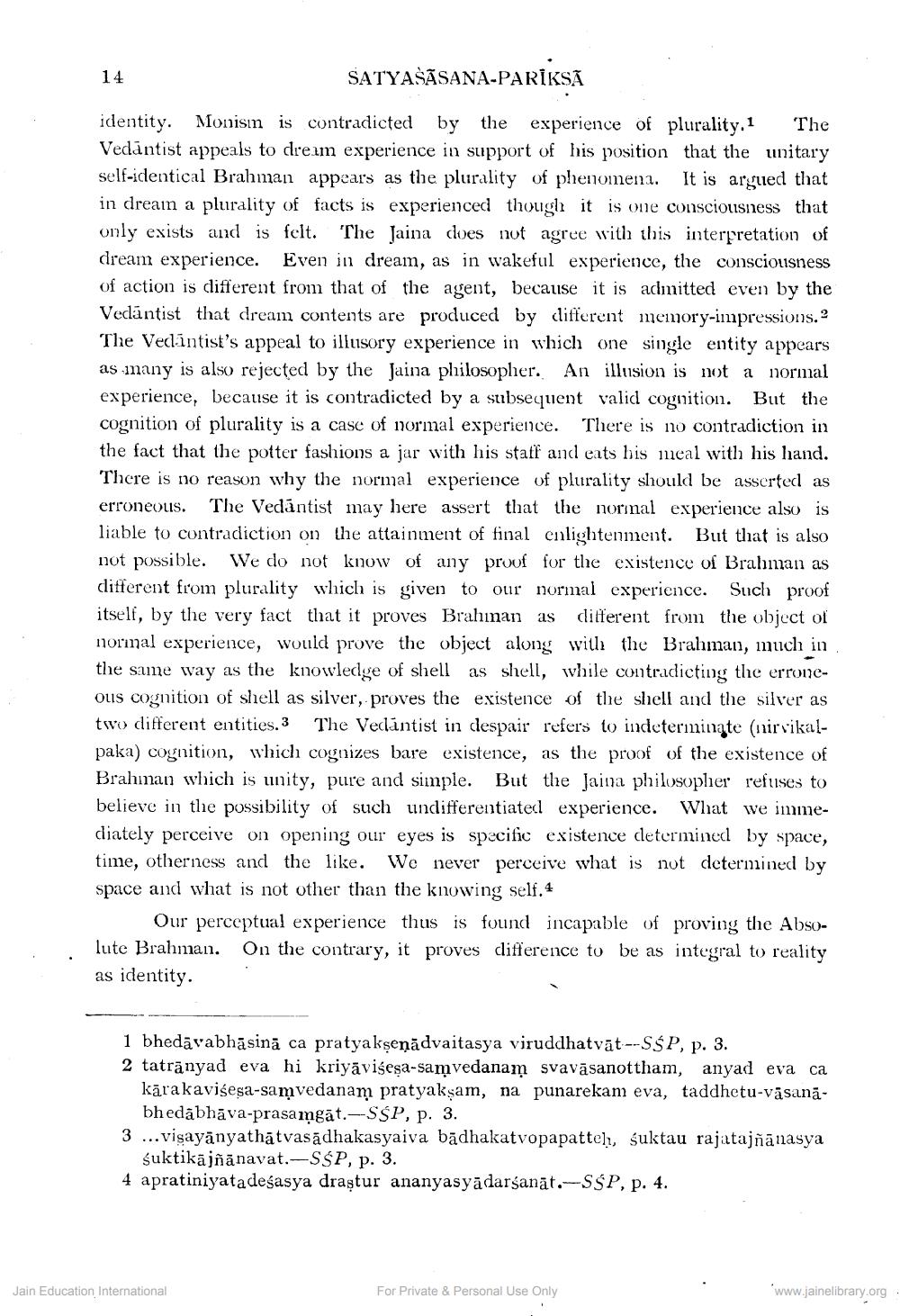________________
14
SATYAŠĀSANA-PARIKSÃ
identity. Monisin is contradicted by the experience of plurality. The Vedāntist appeals to dreum experience in support of his position that the unitary self-identical Brahman appears as the plurality of phenomen. It is argued that in dreain a plurality of facts is experienced though it is one consciousness that only exists and is felt. The Jaina does not agree with this interpretation of dream experience. Even in dream, as in wakeful experience, the consciousness of action is different from that of the agent, because it is admitted even by the Vedāntist that dreain contents are produced by different memory-impressions. The Vedāntist's appeal to illusory experience in which one single entity appears as inany is also rejected by the Jaina philosopher. An illusion is not a normal experience, because it is contradicted by a subsequent valid cognition. But the cognition of plurality is a case of normal experience. There is no contradiction in the fact that the potter fashions a jar with his staff and eats bis meal with his hand. There is no reason why the normal experience of plurality should be asserted as erroneous. The Vedāntist may here assert that the normal experience also is liable to contradiction on the attainment of final enlightenment. But that is also not possible. We do not know of any proof for the existence of Brahman as different from plurality which is given to our normal experience. Such proof itseli, by the very fact that it proves Brahinan as different from the object of norinal experience, would prove the object along with the Brahman, much in the same way as the knowledge of shell as shell, while contradicting the erroneous cognition of shell as silver, proves the existence of the shell and the silver as two different entities. 3 The Vedantist in despair refers to indeterminate (nirvikalpaka) cognition, which cognizes bare existence, as the proof of the existence of Brahman which is unity, pure and simple. But the Jaina philosopher refuses to believe in the possibility of such undifferentiated experience. What we immediately perceive on opening our eyes is specific existence determined by space, time, otherness and the like. We never perceive what is not determined by space and what is not other than the knowing self.4
Our perceptual experience thus is found incapable of proving the Absolute Brahman. On the contrary, it proves difference to be as integral to reality as identity.
1 bhedāvabhāsinä сa pratyaksenādvaitasya viruddhatvāt--SŚP, p. 3. 2 tatrānyad eva hi kriyāviseşa-samvedanam svavāsanottham, anyad eva ca kārakavišesa-samvedanam pratyakşam, na punarekam eva, taddhetu-vāsanā
bhedābhāva-prasa mgāt.--SSP, p. 3. 3 ... Visayanyathātvasādhakasyaiva badhakatvopapatteh, suktau rajatajñānasya
suktikājñānavat.-SŚP, p. 3. 4 apratiniyata deśasya draştur ananyasyādarśanāt.-SŚP, p. 4.
Jain Education International
For Private & Personal Use Only
For Private & Personal Use Only
.
www.jainelibrary.org




